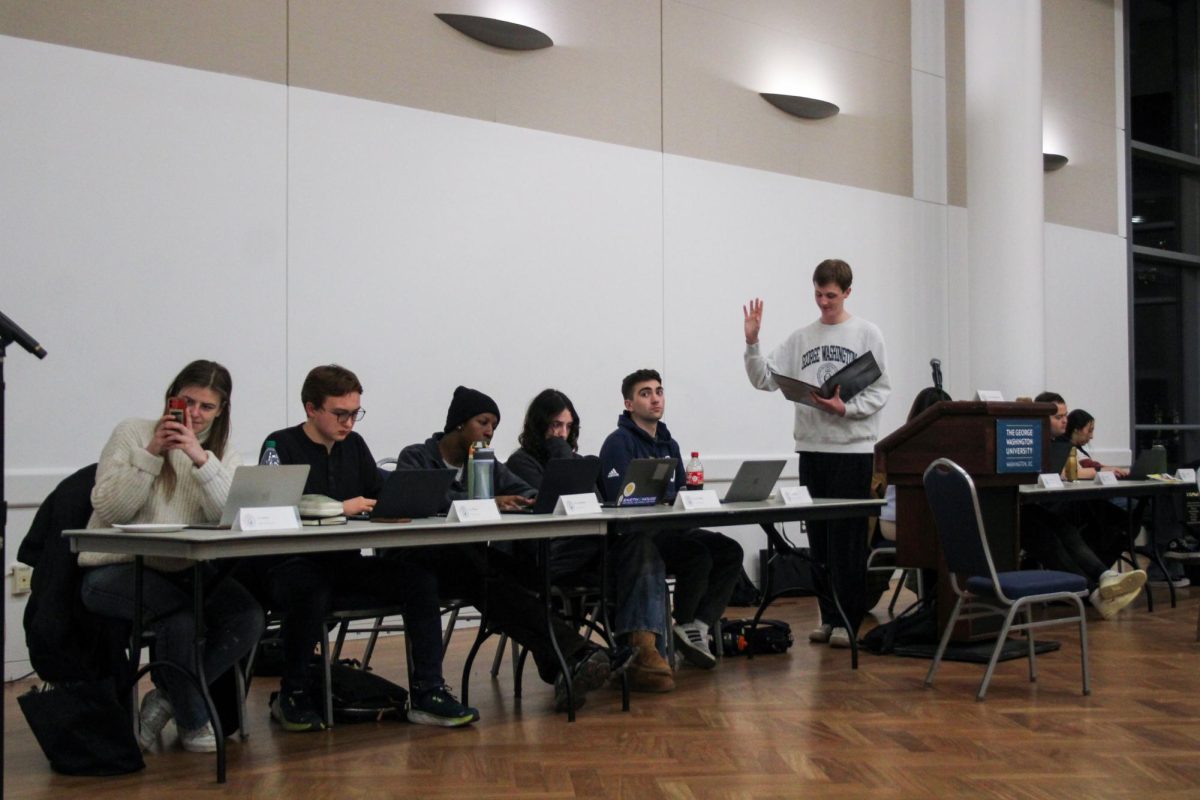After a year of litigation, the Student Association Senate unanimously voted at a special meeting Monday that a 2018 bill equally represents undergraduate and graduate students.
The Student Court decided earlier this month that senators would determine whether the bill giving voting privileges to at most five undergraduates and four graduate students who have served one semester in the senate aligns with senators’ definition of equal representation based on the student code of conduct. SA Sen. AJ Link, Law-G, filed a complaint in April claiming the SA doesn’t adequately represent undergraduates and graduate students because graduate students outnumber undergraduates in the total student body.
SA Executive Vice President Amy Martin said the court would prohibit the SA from passing any legislation until the SA held the meeting, defined representational equality and decided if the amendment approved in a spring 2018 referendum fits that definition.
“We just need to do it, answer these questions and get our answers back to the court so that we fulfill their order,” Martin said.
Link and Samantha Paralikas, the SA’s former vice president for judicial and legislative affairs who is advising the SA during the suit, outlined arguments and briefed senators about the case before senators discussed and voted on the definition.
Link said Monday’s meeting wouldn’t “fix” the issue addressed in his original complaint, which focused on the number of seats allocated to undergraduate and graduate students. He said the complaint did not call on the SA to define representational equality.
“My complaint is centered on the number of seats, not whether or not the elected seats will fall under a specific definition,” he said.
Paralikas, the former vice president for judicial and legislative affairs, said asking senators to define the significance of representation is irrelevant to Link’s original lawsuit.
“The lawsuit was really about determining whether there being five undergrad-at-large seats and four grad-at-large seats was against the charter, and that’s not what we’re here to discuss today,” she said. “We’re here to discuss the term ‘representation’ and what that means.”
Paralikas said the lawsuit discusses the differences between how first-year senate seats are converted and how at-large positions – in which senators represent an entire student population rather than a specific school – are elected.
The student body typically elects senators for the upcoming academic year in the spring.
Paralikas said at-large senators elected in the spring are only elected by the students the senators will represent, who include either graduate or undergraduate students, while the whole senate votes on whether to convert any first-year seat to an at-large position.
“You guys are here to determine whether or not that makes freshman senators and first-year grads representative of both grad and undergraduate students or not,” she said. “Like Sen. Link said, the definition you guys are looking at today is really going to be affecting elected seats and not appointed seats.”
Senators unanimously voted to define “essential representational equality” as “all elected senators must fill a seat, which complies with The Student Association Constitution, Article I, Section 2, in such a way that each student at The George Washington University is equitably represented within the Student Association.”
But the definition does not include senators who are appointed, like students who fill vacant or first-year positions and are approved by a senate majority, rather than those elected to their positions.
Martin, the SA’s executive vice president, said the Student Court defines “constitutionality” as whether “essential representational equality” adheres to the Student Rights and Responsibilities statement in the student code of conduct. She said the statement only references elected members of a governing body, and that she and SA President SJ Matthews are the only SA members who represent the entire student body.
“Their use of [representational equality] is specifically limited to elections and how students are elected into seats, that represents less than the entire student body and all of your seats represent a portion of the student body that is less than the whole,” she said.
The SA Senate also voted unanimously that the 2018 bill adheres to senators’ definition of equal representation.
“Because the bill in question deals with appointed senators and not elected senators, it falls outside the scope of the definition,” Link, Law-G, said. “So by default, it comports with the definition.”
The SA’s decisions wrap up about a year of litigation since Paralikas’ predecessor filed a complaint over first-year voting rights in April 2018 after the student body approved the 2018 bill.








